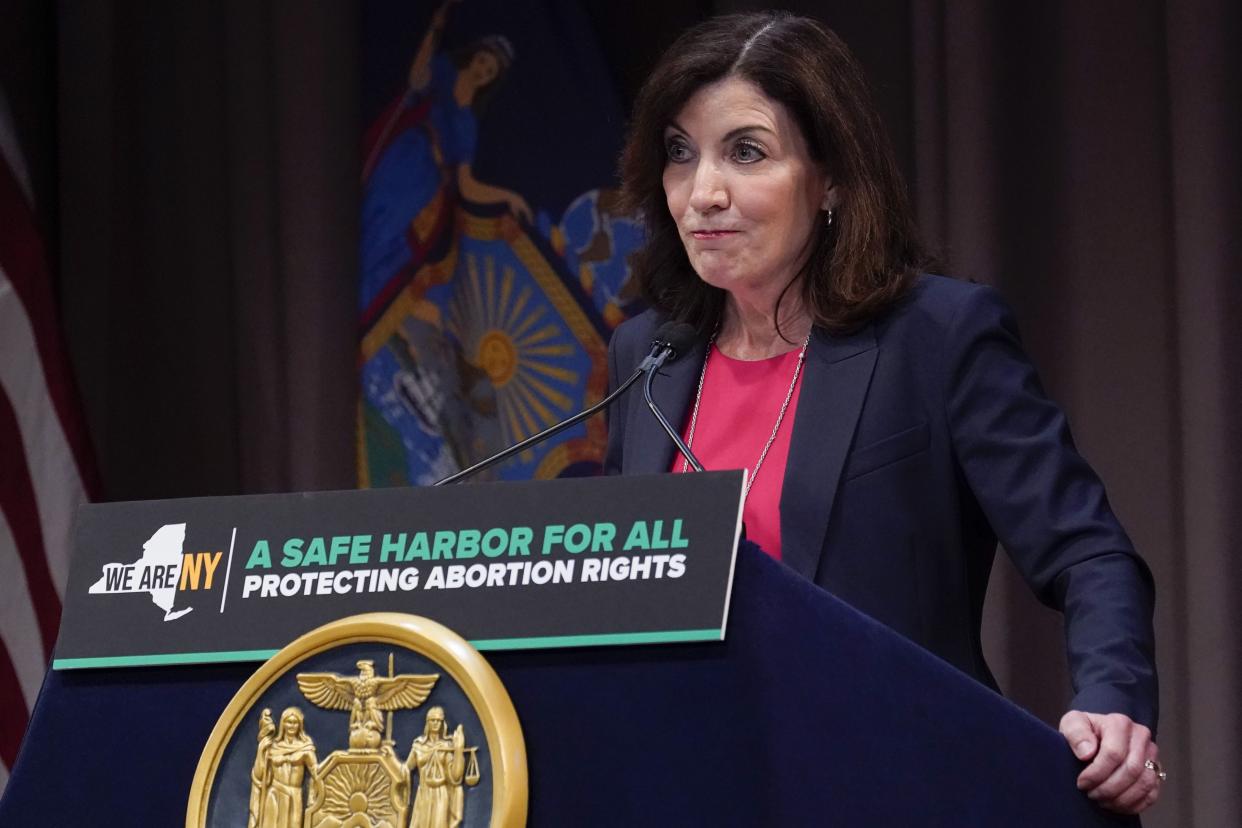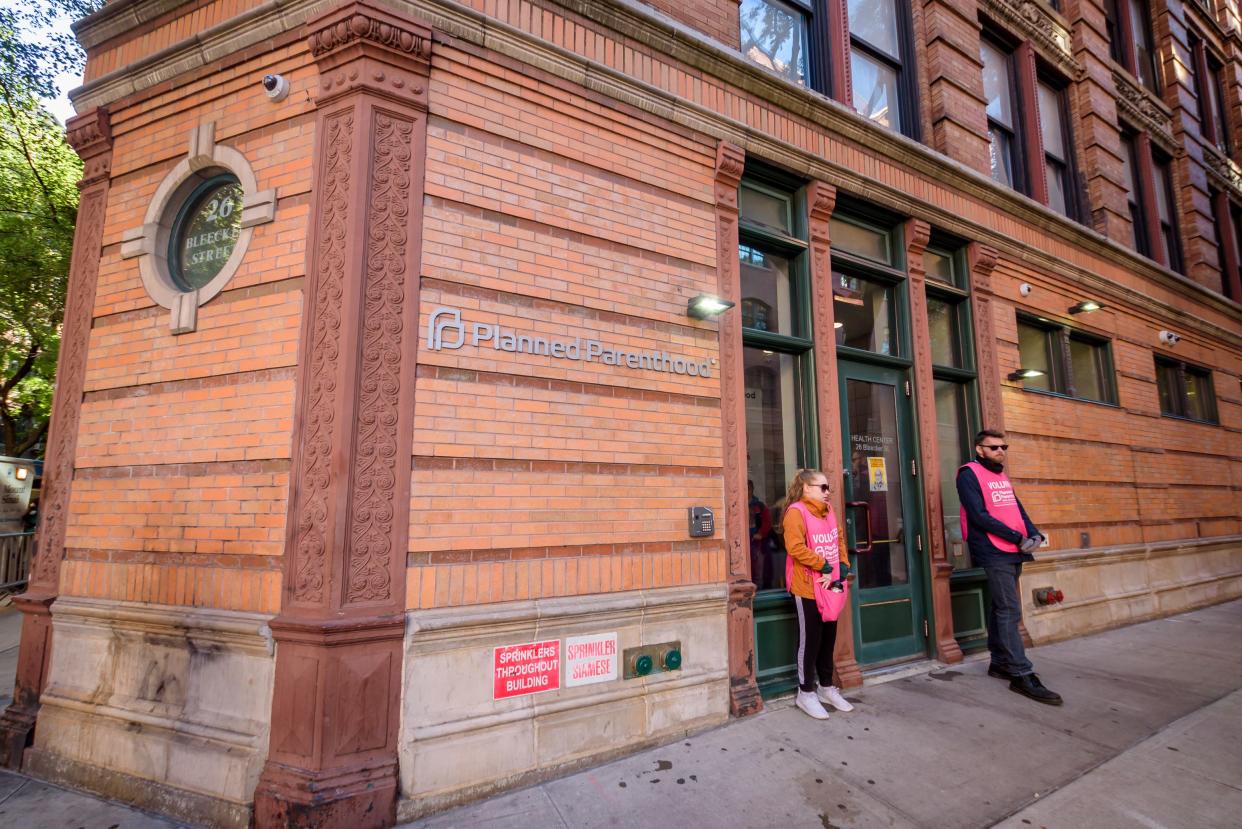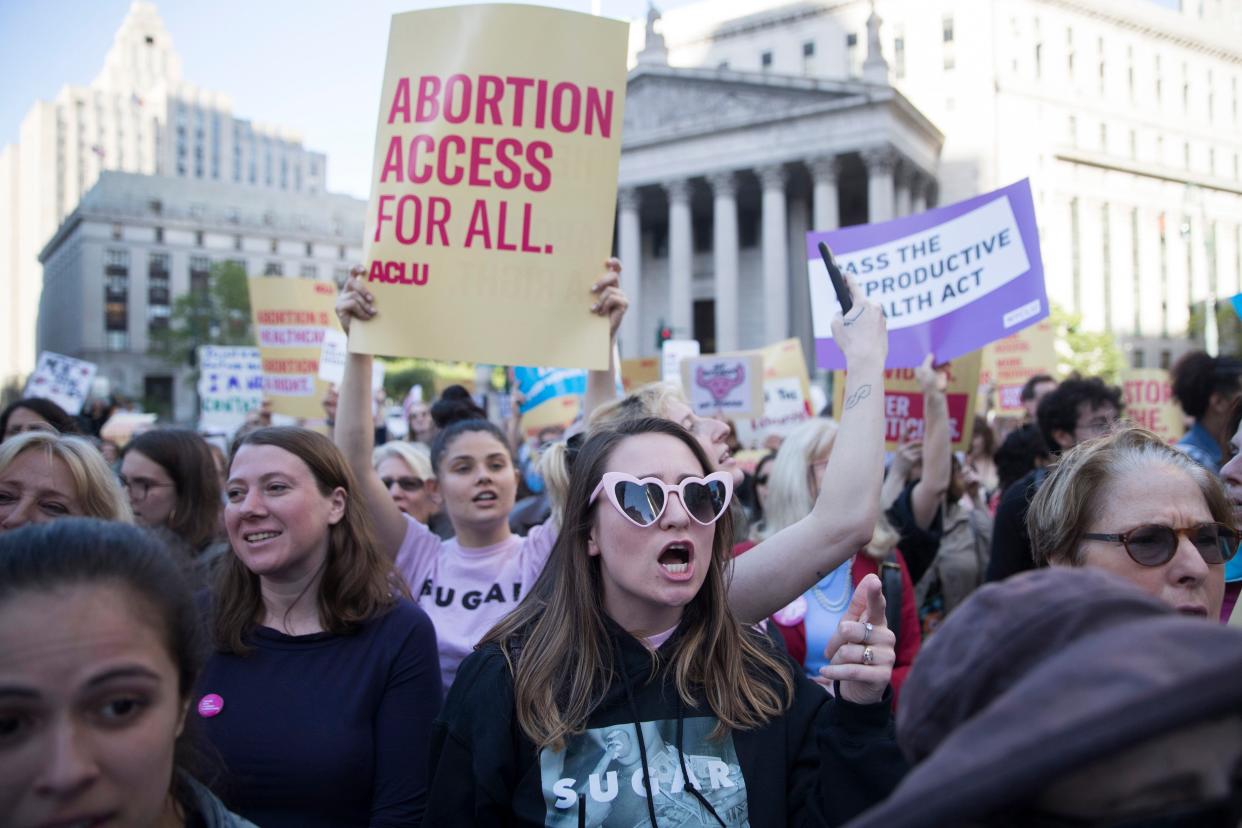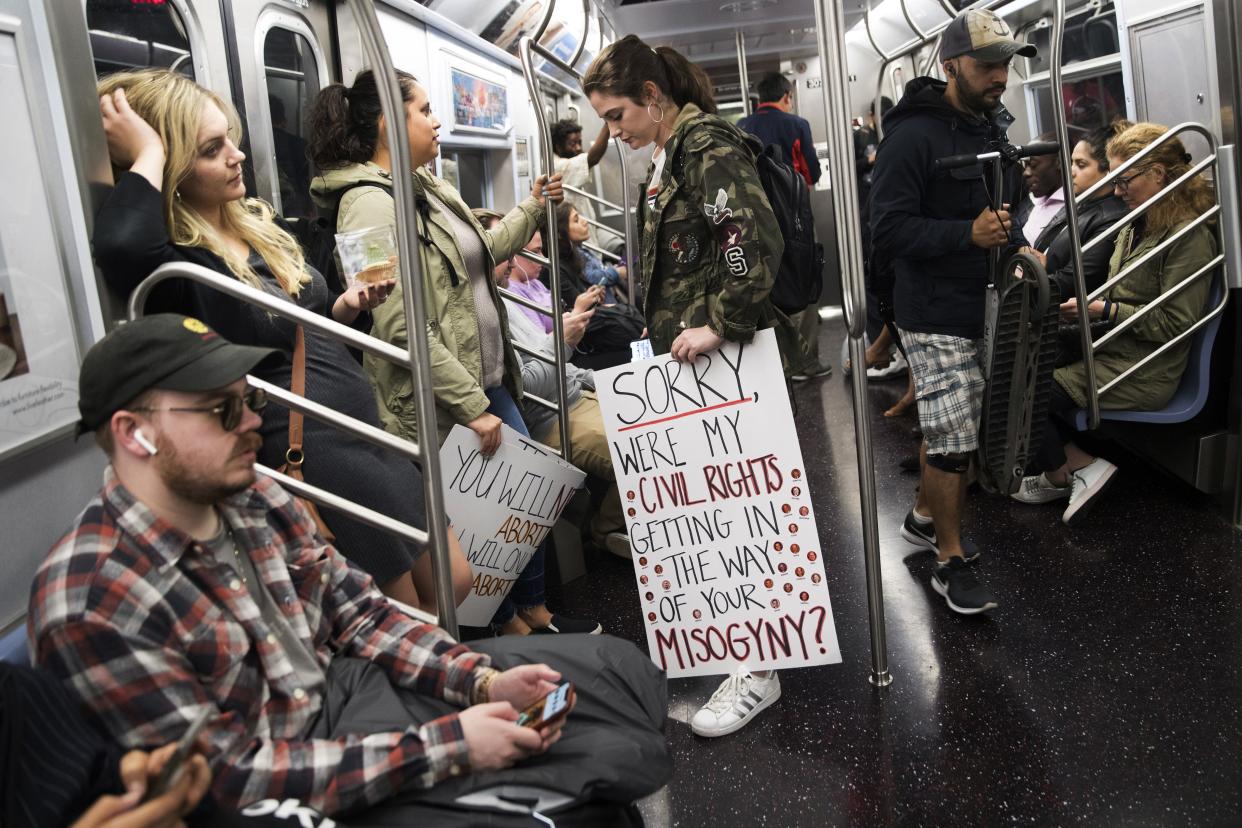Explainer: What does the Supreme Court’s ruling to overturn Roe V. Wade mean for New York
ALBANY — The U.S. Supreme Court’s decision Friday to overturn Roe v. Wade and roll back 50 years of federal abortion rights means dozens of states will move to restrict or ban access to the procedure.
In anticipation of the expected ruling, Gov. Hochul and state lawmakers took steps in recent weeks to bolster legal protections for abortion providers and anyone seeking reproductive care in New York.
“We saw this decision coming. We took preemptive measures,” the governor said following the 6-3 decision on Friday. “And we’re going to continue to protect. The rights of women are sacred in the State of New York. The rights of women will never be jeopardized under my watch in this state, you can count on that.”

New York Gov. Kathy Hochul speaks during a ceremony to sign a legislative package to protect abortion rights in New York, Monday, June 13, 2022. New York has expanded legal protections for people seeking and providing abortions in the state under legislation signed by Gov. Hochul on Monday. (Mary Altaffer/)
Here’s where abortion laws stand in New York and what the Supreme Court’s ruling means:
Q: Are abortions legal in New York?
Yes. New York legalized the procedure in 1970, three years before Roe v. Wade established a constitutional right to abortion.
The Supreme Court’s decision Friday will allow states to criminalize abortions. That will not happen in New York.
Abortions are legal up to 24 weeks of pregnancy or after that point in special circumstances.

Two volunteers standing at the door of the Planned Parenthood offices in SoHo, Manhattan. (Erik McGregor/)
Q: Are abortions are protected under the Reproductive Health Act?
Yes. In 2019, New York enacted the Reproductive Health Act, which essentially codified Roe into state law.
The act moved abortion regulations from the criminal code to the state’s health code.
It also expanded who could provide abortions by allowing qualified, licensed health care providers to offer early and safe abortion services within their expertise and training.
The RHA also extended the window in which women could have abortions to ensure access to care throughout pregnancy when health or life is at risk, or when a pregnancy is not viable.
Q: Can out-of-state residents can seek abortions and reproductive care in New York?
Yes. Gov. Hochul signed a package of laws earlier this month meant to protect those providing or seeking an abortion in New York.
The new laws, passed by the Democrat-led Legislature in the final week of session, will protect the rights of individuals seeking abortion or gender-affirming care in New York.
Other measures boost confidentiality by allowing abortion providers and patients to shield their addresses and make it possible to sue someone for attempting to interfere with rights that are protected in New York.
Out-of-state residents accounted for nearly 9% of the roughly 79,000 abortions performed in New York in 2019, according to the Centers for Disease and Control. That number could skyrocket as other states restrict access to care and criminalize the procedure.

Palmar Kelly, of Cocoa Beach Fla., chants slogans protesting against abortion bans, Tuesday, May 21, 2019, in New York.
Q: Are New York abortion providers protected from legal ramifications in other states?
Yes. A new law enacted earlier this month protects abortion providers from arrest, extradition and legal proceedings in other states by forbidding New York courts and law enforcement agencies from cooperating in most scenarios.
Another law prohibits disciplinary measures against health practitioners for providing legal reproductive health services to patients who reside in states where abortion is illegal.
And a third measure bars medical malpractice insurance companies from taking any adverse action against a reproductive health care provider who performs legal reproductive health care in New York.

Demonstrators carry their signs on a subway train after joining a protest against abortion bans, Tuesday, May 21, 2019, in New York.
Q: Will New York officials go further to protect women seeking abortions?
That’s the goal, but a state constitutional amendment prohibiting discrimination based on factors ranging from “pregnancy and pregnancy outcomes” to sex and gender identity failed to make it to a vote before the end of the legislative session.
Still, lawmakers in both chambers have voiced support for the measure and want to see it approved. Such amendments must be voted on in two legislative sessions years before voters have the final say.
Gov. Hochul vowed Friday to continue to expand abortion access in the Empire State.
“New York has always been a beacon for those yearning to be free. Our state will always be a safe harbor for those seeking access to abortion care,” she said. “To anyone who is working to deny abortion access, our message is clear: not here, not now, not ever.”
In response to the Supreme Court’s ruling in Dobbs v. Jackson, Hochul and the state Health Department are launching a public education campaign to remind New Yorkers and others across the country about the state’s laws.
The campaign includes multiplatform advertising efforts and a website with information about abortion rights, providers, supports, and payment options in New York.
